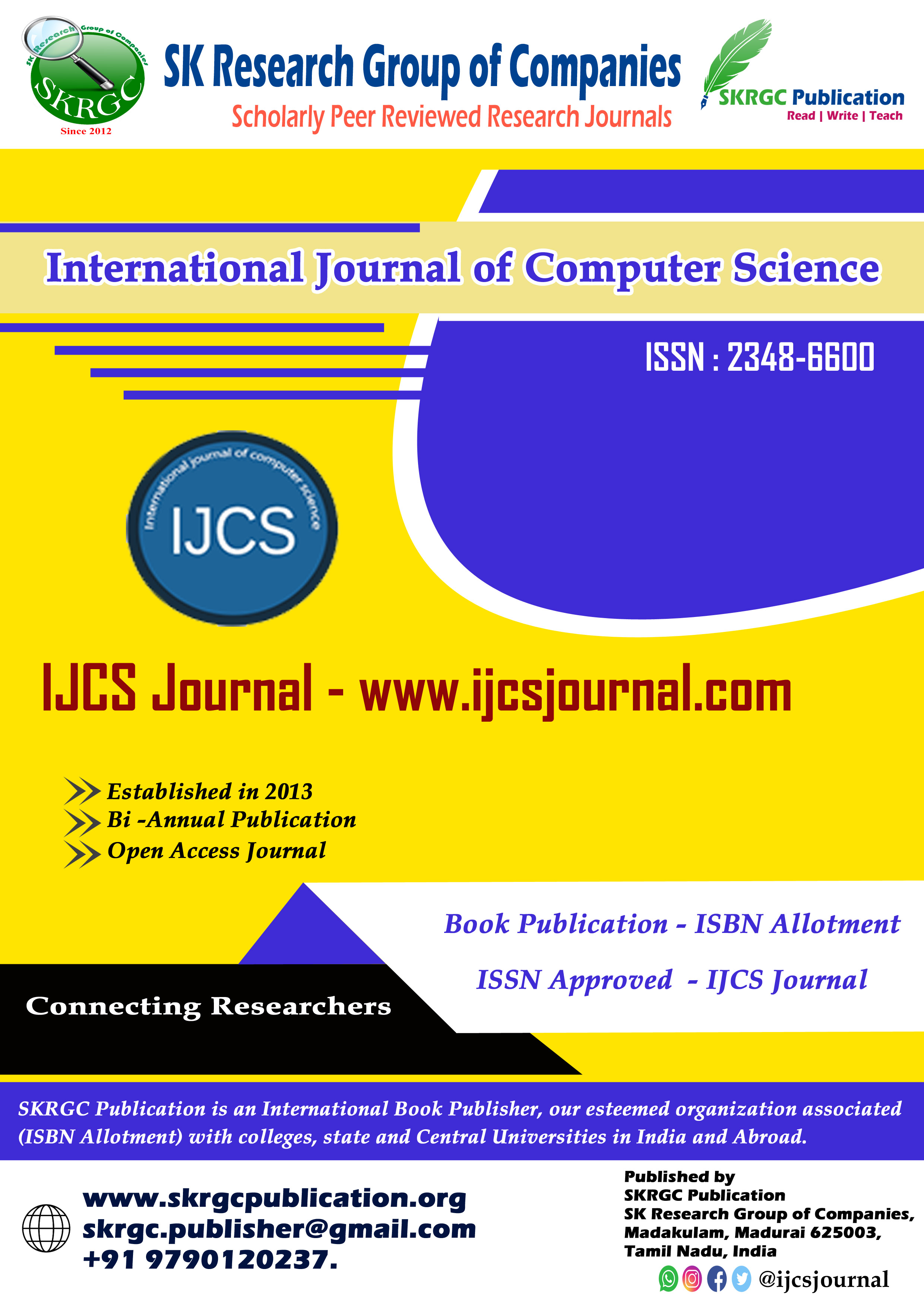A COMPARISION OF IWOBS AND MEESA TECHNIQUES FOR MAKESPAN AND AVERAGE PROCESSING TIME CONSTRAINTS IN JOB SHOP SCHEDULING
International Journal of Computer Science (IJCS) Published by SK Research Group of Companies (SKRGC)
Download this PDF format
Abstract
Job Shop scheduling is a decisionmaking problem. Generally, the Job Shop Scheduling Problem (JSSP) occurs in the job scheduling process in some machines or resources at a certain time. Many researchers expanded various models of the JSSP from the mid-50s and developed several algorithms to solve it. In Job shop Scheduling decreasing the average processing time of individual jobs, improving the malespan of the overall job shop and Energy conservation are the key factors to be considered. In this paper Modified Energy Efficiency Scheduling Algorithm (MEESA) and Improved Whale Optimization with Buffer Setup time (IWOBS) two new techniques adopted were compared.
References
1. Rai Siva Sai Pradeep (2016), “Optimization of job shop schedules using LEKIN® Scheduling system”, International Journal of Engineering and Technical Research (IJETR), Volume-4, Issue-2.
2. Jian Zhang, Guofu Ding, Yisheng Zou, · Shengfeng Qin, Jianlin Fu (2017), “Review of job shop scheduling research and its new perspectives under Industry 4.0”, J Intell Manuf.
3. Asiye Aydilek, Harun Aydilek, and Ali Allahverdi (2017), “Algorithms for minimizing the number of tardy jobs for reducing the production cost with uncertain processing times”, Applied Mathematical Modelling.
4. Zhonghua Han, Quan Zhang, Haibo Shi, Yuanwei Qi, and Liangliang Sun (2018), “Research on Limited Buffer Scheduling Problems in Flexible Flow Shops with Setup Times”, International Journal of Modelling.
5. Seyedali Mirjalili, and AndrewLewis (2016), “The Whale Optimization Algorithm”, Advances in Engineering Software.
6. Adrika Mukherjee, Niloy Chakraborty, and Badhan Kumar Das (2017), “Whale Optimization Algorithm: An Implementation to design low-pass FIR Filter”, International Conference on Innovations in Power and Advanced Computing Technologies.
7. Zhuo Zhang, Weidong Liu, Li-E Gao, Yangyang Zhang, and Zeyu Lile Li (2014), “A Novel Network Scheduling Approach Based on Genetic Algorithm for Autonomous Underwater Vehicle Control”, IEEE Access, volume 7.
8. Harshita Jha, Subrata Chowdhury& Ramya.G (2017), “Survey on various Scheduling Algorithms”, Imperial Journal of Interdisciplinary Research (IJIR) Volume 3, Issue 5.
9. Sharath C.H. Somashekhara, Arun K.Y. Setty, Srinath M. Sridharmurthy, Poornima Adiga, Ulavathi S. Mahabaleshwar, Giulio Lorenzini (2019), “Makespan reduction using dynamic job sequencing combined with buffer optimization applying genetic algorithm in a manufacturing system”, Mathematical Modelling of Engineering Problems, Volume 6, issue1, pp. 29-37.
10. Zhongwei Zhang, Lihui Wu, Tao Peng, and Shun Jia, (). “An Improved Scheduling Approach for Minimizing Total Energy Consumption and Makespan in a Flexible Job Shop Environment”, MDPI, volume 11.
Keywords
MEESA, Scheduling, Optimization, Resources, JSSP.

